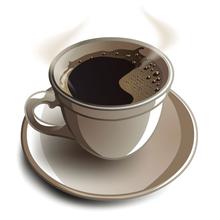Introduction to the regional treatment method for describing the flavor of Pacamara coffee beans in El Salvador
Introduction to the regional treatment method for describing the flavor of Pacamara coffee beans in El Salvador
El salvador is a small country in Central America, adjacent to Guatemala and Honduras. Like its two neighbors, El Salvador is famous for its high-quality coffee. One of the more famous varieties in El Salvador is the natural string coffee found in El Salvador, the Pacamara species (pacamara), which is a string of Pacas and Maragogype (elephant beans), which inherits the size of elephant beans and is burly. Salvadoran coffee is famous for its soft acidity. It tastes clean, sweet and mellow. Whether it is drunk alone or mixed together, it is a good coffee.
Siberia Estate is a historic farm in the province of Santa Ana in the northwest of El Salvador. The history of coffee cultivation dates back to 1870.
[Siberia sign hung in the manor office area]
Pakamara coffee is launched in Guatemala and Malakaz coffee is introduced in Nicaragua. The hybrid of Malakaz coffee Marago Rippi and Kaduai belongs to the large variety of No. 19 sieve and has a low yield. As a result, it was crossed with the high-yielding dwarf variety Kaduai, resulting in a variety with a mild floral and sour taste, as well as a taste known as complex and delicate in the wine category.
Paramara and Malakaz are both artificial hybrids, while Vera Sharapa and Villarobos found in Costa Rica are variants of the natural cross between Bourbon and Debra. Costa Rican coffee has a monotonous and sour impression, but these two kinds of coffee are sour but fruity. The coffee with proper sour taste also exudes a certain sweet taste, so the cup test score is quite high. Sour taste is divided into "good sour taste" and bad sour taste, and both kinds of coffee have "good sour taste".
Costa Rica says that these varieties are planted in different fields. Because the profit of the low-yielding geisha is higher than that of the Tibika, there is Ruyiru in Kenya. No matter which variety, the taste has been greatly improved, and more distinctive.

Important Notice :
前街咖啡 FrontStreet Coffee has moved to new addredd:
FrontStreet Coffee Address: 315,Donghua East Road,GuangZhou
Tel:020 38364473
- Prev

Ethiopian coffee beans G1 and G2 are just different in the number of defective beans.
Ethiopian coffee beans G1 and G2 are just different in the number of defective beans? the characteristics of the variety introduce that defective beans are an important factor that destroys the flavor of the final coffee. Therefore, defective beans should also be removed in the last step of raw bean processing. This has the problem of the number of defective beans, so according to the proportion of defective beans, supplemented by the size of the screen is also a way of classification. Due to the trend of boutique coffee
- Next

Flavor description of Ethiopian Lion King Coffee Bean introduction to the Regional treatment method of Manor production
Flavor description of Ethiopian Lion King Coffee beans Coffee is the most important export cash crop and the main source of foreign exchange income in Ethiopia. Ethiopia's coffee exports account for about 3% of the world market, making it the eighth largest coffee exporter in the world. Coffee exports increased steadily from 58000 tons in 1990 to 1995-1996.
Related
- Detailed explanation of Jadeite planting Land in Panamanian Jadeite Manor introduction to the grading system of Jadeite competitive bidding, Red bid, Green bid and Rose Summer
- Story of Coffee planting in Brenka region of Costa Rica Stonehenge Manor anaerobic heavy honey treatment of flavor mouth
- What's on the barrel of Blue Mountain Coffee beans?
- Can American coffee also pull flowers? How to use hot American style to pull out a good-looking pattern?
- Can you make a cold extract with coffee beans? What is the right proportion for cold-extracted coffee formula?
- Indonesian PWN Gold Mandrine Coffee Origin Features Flavor How to Chong? Mandolin coffee is American.
- A brief introduction to the flavor characteristics of Brazilian yellow bourbon coffee beans
- What is the effect of different water quality on the flavor of cold-extracted coffee? What kind of water is best for brewing coffee?
- Why do you think of Rose Summer whenever you mention Panamanian coffee?
- Introduction to the characteristics of authentic blue mountain coffee bean producing areas? What is the CIB Coffee Authority in Jamaica?

